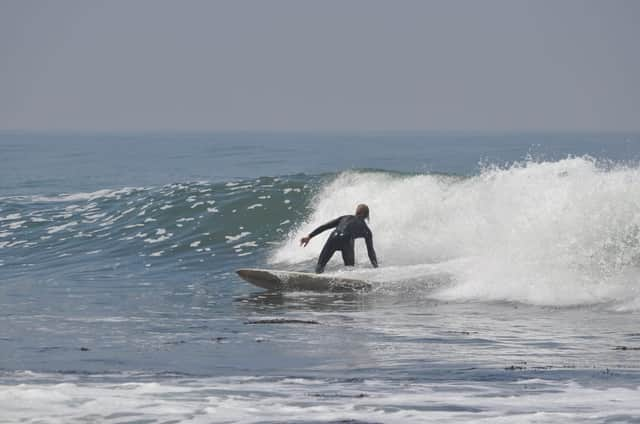Surfers 'three times more likely to have antibiotic-resistant bacteria in their guts'


British surfers are three times more likely to have antibiotic-resistant E. coli bacteria in their gut than other people, according to a new study.
Researchers also found that people who regularly surf or bodyboard in Britain's coastal waters were four times as likely to harbour bacteria that contain genes that make them resistant to antibiotics.
Advertisement
Hide AdAdvertisement
Hide AdThe Beach Bums study, conducted by the University of Exeter, asked 300 people, half of whom regularly surf the British coastline, to take rectal swabs.


Surfers swallow 10 times more sea water than sea swimmers, and scientists wanted to find out if that made them more vulnerable to bacteria that pollute seawater, and whether those bacteria are resistant to an antibiotic.
Scientists compared faecal samples from surfers and non-surfers to assess whether the surfers' guts contained E. coli bacteria that were able to grow in the presence of cefotaxime, a commonly used and clinically important antibiotic.
Cefotaxime has previously been prescribed to kill off these bacteria, but some have acquired genes that enable them to survive the treatment.
Resistance change
Advertisement
Hide AdAdvertisement
Hide Ad

The study, published in the journal Environment International, found that 13 out of 143 surfers (nine per cent) were colonised by the resistant bacteria, compared to just four out of of 130 of non-surfers swabbed (three per cent). That meant that the bacteria would continue to grow even if treated with cefotaxime.
Researchers also found that regular surfers were four times as likely to harbour bacteria that contain mobile genes that make bacteria resistant to the antibiotic.
Scientists say that is significant because the genes can be passed between bacteria - potentially spreading the ability to resist antibiotic treatment between bacteria.
The UN Environment Assembly recently recognised the spread of antibiotic resistance in the environment as one of the world's greatest emerging environmental concerns.
Advertisement
Hide AdAdvertisement
Hide AdStudy leader Dr Anne Leonard, of Exeter University Medical School, said: "Antimicrobial resistance has been globally recognised as one of the greatest health challenges of our time, and there is now an increasing focus on how resistance can be spread through our natural environments.
"We urgently need to know more about how humans are exposed to these bacteria and how they colonise our guts.
"This research is the first of its kind to identify an association between surfing and gut colonisation by antibiotic resistant bacteria."
Despite extensive operations to clean up coastal waters and beaches, potentially harmful bacteria still enters the environment through sewage and waste pollution from sources including water run-off from farm crops treated with manure.
Advertisement
Hide AdAdvertisement
Hide AdThe Beach Bums study showed the prevalence of cefotaxime-resistant E. coli in UK bathing waters as well as the prevalence of the mobile resistance gene that make bacteria cefotaxime resistant.